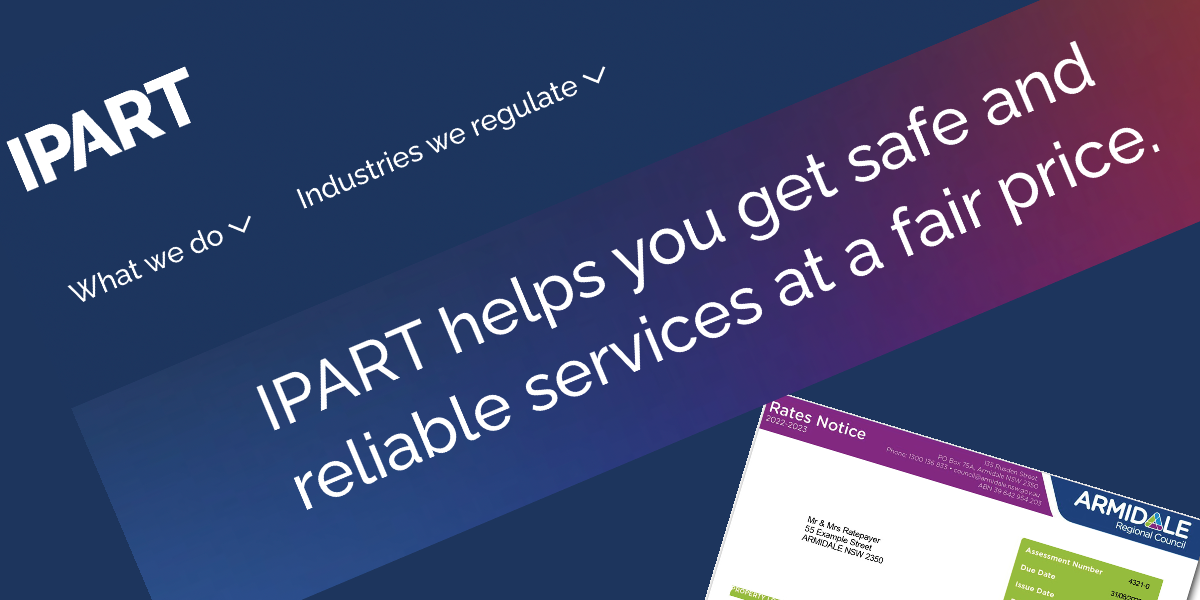Armidale, Liverpool Plains, Tenterfield and Walcha councils have all applied to significantly increase their rates, and their applications are now up on the IPART website with residents invited to comment.
Every year the NSW Government Independent Pricing and Regulatory Tribunal (IPART) decides a ‘rate peg‘ for each council in NSW which sets the maximum amount councils can increase the revenue they collect from rates. Councils must apply to IPART to increase their rates revenue by more than the rate peg – most commonly referred to by councils as a special rate variation or SRV.
What is IPART and what role do they have in your rates? Read our explainer.
Armidale Regional Council is applying for a 16.6% increase to rates each year for three years (including the rate peg) or a cumulative 58.8% increase. Read their application here.
Liverpool Plains Council is applying for a single 18.8% increase to make the temporary increase of the last two years permanent. Read their application here.
Tenterfield Shire Council, which is in a world of financial strife and facing significant debts, is applying for a 43% increase in 23-24, and an additional 43% the following fiscal year, resulting in a whopping cumulative increase of 104.49%. Read their application here.
Walcha Council, after much deliberation and research, has applied for a permanent increase of 36.5% in the first year, then 8% in 24-25, and a further 7% in 25-26, for a total cumulative increase of 57.74%. Read their application here.
Each application contains a large series of documents most of which are highly technical and take some reading. Application part A is an excel worksheet which has all the numbers – what percentage of increase they are requesting over how many years, what the given rate peg is, and so on. Application Part B is the IPART form that the council has completed, with tables for each criteria where the council is justifying their request. And then there are lots of attachments, including the long term financial plan (LTFP)
IPART strongly recommends using the online form to make your views on your councils SRV known, as it will walk you through the criteria they consider. There is also a section to make further comment and attach documents if you wish. Access the form here, and select the appropriate council at the top.
The SRV applications are open for public comment until March 3, 2023.
Have something to say about this story? Submit your own opinion piece, or quick word, to The Net.

